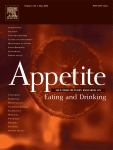New paper: Are food parenting practices gendered? Impact of mothers’ and fathers’ practices on their child’s eating behaviors.

Past research has mainly focused on the links between mothers’ feeding practices and children’s eating behaviors. Fathers have received much less attention and little is also known about how the use of similar or different feeding practices within families influences children’s behaviors. To fill this gap, Kaat Philippe (ESR7) and her colleagues conducted a study with both parents of 105 French children aged 2-6 years. They wanted to evaluate possible differences between mothers’ and fathers’ perceptions and practices, as well as links with children’s eating behaviors.
Their results first highlighted that fathers and mothers perceived their child’s eating behaviors (e.g., their appetite, food enjoyment, food rejections, self-regulation of food intake) in similar ways, despite the fact that mothers took significantly more meals with their child than fathers. In most households, mothers were mainly responsible for cooking.
They also observed some differences in parental practices: fathers used more pressure to eat (“finish your plate”) and food as reward (“if you behave well, you’ll get an ice cream”) than mothers, but less ‘family meal setting’ (offering the same foods to the child as to the rest of the family). Nevertheless, in many families, mothers and fathers had globally similar feeding practices and styles.
Moreover, their analyses showed that both mothers’ and fathers’ feeding practices and styles were linked to children’s eating behaviors. For example, when parents use more pressure to eat, their children show less food enjoyment, and this was especially true in families where both parents use higher levels of pressure to eat. This practice was also linked to more food rejections in the child.
To conclude, Kaat and her colleagues highlight the importance of including fathers in studies about children’s eating behavior and to include both mothers and fathers in feeding interventions and health recommendations’ campaigns. They also point out that both parents within families should avoid using coercive feeding practices (pressure to eat, food rewards) to limit children’s reluctance to eat varied/new foods and to maintain food enjoyment.
The paper is published in Appetite:
Philippe, K., Chabanet, C., Issanchou, S., & Monnery-Patris, S. (2021). Are food parenting practices gendered? Impact of mothers’ and fathers’ practices on their child’s eating behaviors. Appetite, 166, 105433. https://doi.org/10.1016/j.appet.2021.105433
A summary in French has been written by CERIN, a French nutritional research and information center, based on a conference presentation on this study by Kaat Philippe at The British Feeding and Drinking Group (BFDG) 45th Annual Meeting in March 2021:
child eating behaviors, ESR7, fathers, parental feeding practices, parental feeding style, preschoolers

